- Written By Team DWS
- Festivals
- August 05, 2025
Onam: Kerala’s Festival of Unity, Culture, and Joy
Introduction
Among India’s vibrant and diverse festivals, Onam stands out as Kerala’s grandest cultural celebration and a heartfelt homecoming for Malayalis worldwide. Celebrated over ten vibrant days in the verdant Malayalam month of Chingam (August–September), Onam honors the legendary homecoming of King Mahabali, celebrates the bounties of the harvest season, and unites everyone in a jubilant embrace of communal harmony, art, and devotion. This blog post explores Onam’s origins, mythologies, traditions, and contemporary relevance, painting a vivid portrait of why Onam is more than a festival—it is Kerala’s very soul.
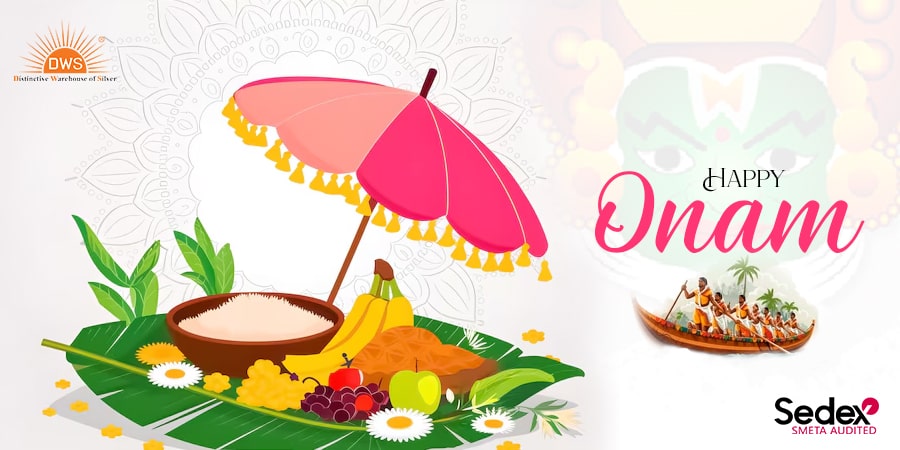
1. The Myth and Legend of Onam
At the heart of Onam is the legendary story of King Mahabali, a kind hearted Asura monarch whose reign transformed Kerala into a land of prosperity and virtue. Loved by his subjects for his sense of justice and generosity, Mahabali’s popularity, however, unsettled the gods. Lord Vishnu, incarnating as Vamana (a dwarf Brahmin), approached Mahabali and asked for “three paces of land.” As Mahabali agreed, Vamana grew to cosmic proportions—in two steps, he covered the earth and sky; with nowhere left, Mahabali offered his own head for the third step. Touched, Vishnu granted Mahabali a boon: to visit his people once every year. Onam marks this annual sojourn, celebrating the king’s memory and ensuring his symbolic homecoming in every Malayali heart.
2. Historical and Cultural Roots
Onam’s roots traverse time, reaching into the Sangam era, making it a festival of both mythological depth and historical antiquity. Early Tamil literature such as Maturaikkāñci (3rd century CE) references “Onam” as a festival marked by games, rituals, feasts, and new clothes. Temple inscriptions from the 11th and 12th centuries record offerings and communal celebrations linked to Onam, emphasizing its enduring relevance. Over centuries, Onam has absorbed influences from Kerala’s layered history, syncretizing tribal rites, Hindu legends, and local customs into a spectacular multifaceted event.
3. The Ten Days of Onam: Rituals and Revelry
Day-by-Day Breakdown
Each day of Onam’s ten-day calendar has its own customs, transforming villages, towns, and cities into a kaleidoscope of color, devotion, and festivity:
- Atham: The festival’s start, marked by the first layer of floral carpets (pookalam) and the promise of King Mahabali’s return.
- Chithira: Homes are cleaned, more flowers are added, symbolizing purity and preparation.
- Chodi: Families shop for new clothes (Onakkodi), gifts, and festoon their homes.
- Visakam: Competitions and performances such as Onathallu (a form of martial art) energize the celebrations.
- Anizham: The iconic Vallam Kali (snake boat races) surge through Kerala’s backwaters, watched by thousands.
- Thriketta: People begin traveling to reunite with family; businesses wind down for the upcoming holiday.
- Moolam: Pulsating folk arts, especially the Pulikali (tiger dance), fill the streets; mini feasts echo the grand banquet to come.
- Pooradam: Figurines of Mahabali and Vamana are placed at the center of the pookalam.
- Uthradam: Gifts are exchanged, particularly by the eldest male (karanavar) in families and villages.
- Thiruvonam: The climax—elaborate prayers, the sumptuous Onam Sadya, temple visits, and a profound sense of unity.
4. The Onam Sadya: A Feast for the Senses
No description of Onam is complete without the Onam Sadya—an extravagant vegetarian banquet that mirrors Kerala’s agricultural wealth and culinary artistry. Traditionally served on banana leaves, the Sadya features up to 26 dishes, including:
- Rice (central to the meal)
- Sambar, Rasam, Parippu (dal)
- Avial, Thoran, Olan, Kalan (vegetable dishes)
- Pachadi, Kichadi, Injipuli (sides)
- Pappadam (crispy wafers), banana chips
- Payasam (the much-celebrated dessert)
The Sadya not only satisfies appetites but also signifies the abundance, hospitality, and inclusivity that characterized Mahabali’s reign.
5. Art, Sports, and Community: Celebrations for Everyone
Onam is notable for its pageantry and participatory events, which transform Kerala into a living stage:
- Pookalam: Every household—urban or rural—creates intricate flower rangolis at their doorstep. The pookalam grows daily, often designed collaboratively by family members, bringing creativity to the fore.
- Vallam Kali (Boat Races): Kerala’s snake boats glide majestically across the backwaters, each carrying up to a hundred oarsmen rowing in perfect synchrony.
- Pulikali (Tiger Dance): Streets become a riot of color as dancers painted as tigers and hunters perform to drumbeats, captivating kids and adults alike.
- Folk Arts and Dances: Women perform Thiruvathira and Kaikottikali; men participate in Onathallu (martial displays), Kummattikali (mask dances), and other community games.
- Carnivals and Processions: Many towns stage “Athachamayam” processions bursting with floats, drums, and decorated elephants.
- Temple Worship: Spirituality remains central, with elaborate rituals at temples, especially at Thrikkakara Temple, believed to be Vamana’s sacred site.
6. Inclusivity and Social Harmony
Onam’s beauty lies in its embrace of every faith and community. Hindu, Christian, and Muslim households across Kerala participate in Onam’s rituals and feasting, making it a symbol of unity. It bridges rural and urban, rich and poor, consuming all in its spirit of oneness and gratitude.
7. The Symbolism of Onam
Onam’s customs are steeped in rich symbolism:
- The Homecoming of Mahabali: Represents the ideal of just governance, setting a benchmark for rulers.
- Pookalam: Marvels at nature’s bounty, thanks the earth for a good harvest, and fosters family collaboration.
- Onam Sadya: Invokes generosity, celebrating abundance and the joy of sharing.
- Boat Races/Pulikali: Reflect Kerala’s connection with its land and waterways as well as its vibrant folk spirit.
- New Clothes (Onakkodi): Symbolize renewal, hope, and a fresh start.
At its core, Onam reaffirms the values of kindness, humility, gratitude, and communal harmony.
8. Onam in the Contemporary Era
While Kerala remains the epicenter, Onam is now a global festival. Migrant Malayalis recreate Onam’s rituals—be it floral carpets in the Middle East and America or Sadya feasts in Europe and Australia. Technology and social media connect families across continents; virtual Pookalam contests and community feasts are now common. Kerala’s government, tourism board, and local organizations use Onam as a showcase of Kerala’s unique culture, attracting visitors from around the globe.fabhotels+1
9. Onam in Popular Culture
Literature, cinema, and music celebrate Onam with a rich repository of songs (“Onappattukal”), films, and documentaries. School children perform Onam skits; artists paint Mahabali; television channels air special Onam programs and Sadya cookery shows, immersing even the casual observer in the festival’s spirit.
10. Sustainability and the Future of Onam
Modern Onam celebrations increasingly emphasize eco-friendly practices—using indigenous flowers for Pookalam, discouraging plastic at Sadya feasts, and promoting traditional games over firecrackers. Kerala’s youth are rediscovering age-old traditions, ensuring Onam’s relevance for generations to come.

Conclusion
Onam, with its melange of myth, history, ritual, and revelry, is not just Kerala’s biggest festival—it is a celebration of human goodness, cultural pride, and communal harmony. As floral carpets bloom and feasts abound, as snake boats surge and tiger dancers captivate, Onam invites everyone—Malayali or not—to join in its dance of gratitude and joy.
May Onam’s spirit of unity, prosperity, and generosity fill your hearts and homes every year!
Wishing you and your loved ones a joyous and blessed Onam!
This in-depth blog post explores the roots, rituals, and contemporary significance of Onam, Kerala’s most beloved festival, based on a range of cultural and historical sources.
Popular on Blogs
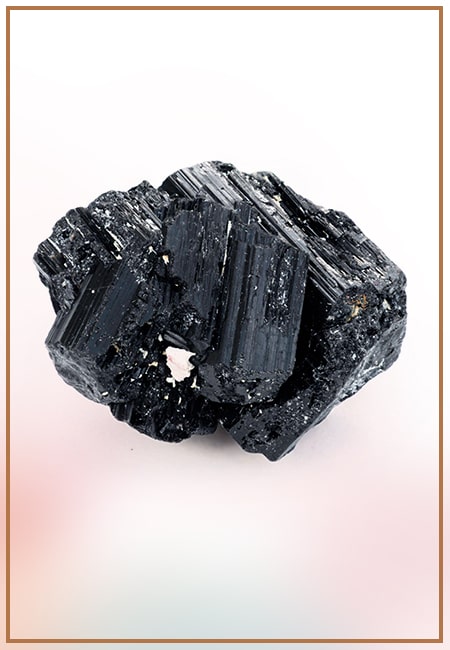
Black Tourmaline: Meaning, Healing Properties, Fascinating Facts, Powerful Attributes, Versatile Uses, and Beyond
September 05, 2023 / BY Team DWS
Black Tourmaline, also known as Schorl, is a highly revered crystal with incredible metaphysical properties. It derives its name from the Dutch word "turamali," meaning "stone with ..
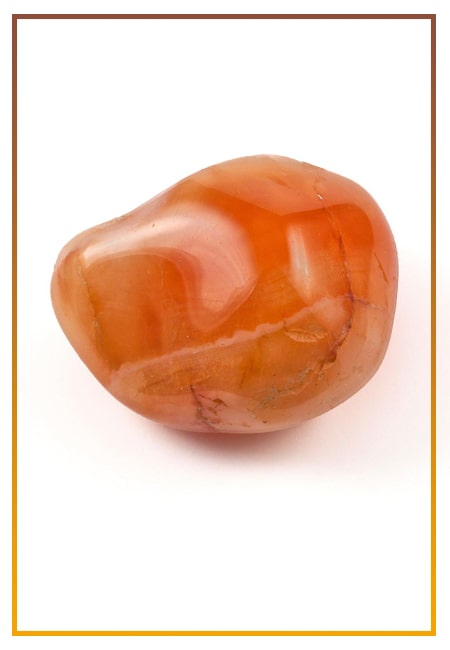
Carnelian Stone: Meaning, Healing Properties, Power, Facts, Color, Uses and More
December 26, 2023 / BY Team DWS
Carnelian is a vibrant and captivating gemstone that holds a plethora of meanings, healing properties, and powers. Its warm and fiery energy makes it a popular choice among crystal ..
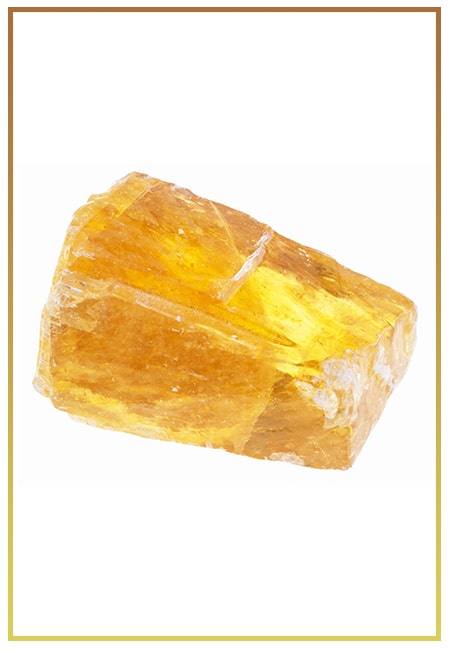
Citrine: Exploring its Meaning, Healing Properties, Fascinating Facts, Powers, Versatile Uses, and Much More
November 18, 2023 / BY Team DWS
Citrine, with its warm golden hues, has captured the attention and imagination of people for centuries. This beautiful gemstone, commonly associated with wealth and prosperity, hol ..

Black Onyx: Unveiling the Meaning, Healing Properties, Fascinating Facts, Powerful Attributes, Versatile Uses, and Beyond
July 25, 2023 / BY Team DWS
Black Onyx, a striking gemstone admired for its deep black hue and elegant appearance, has captivated people for centuries. In this comprehensive guide, we will delve into the mean ..
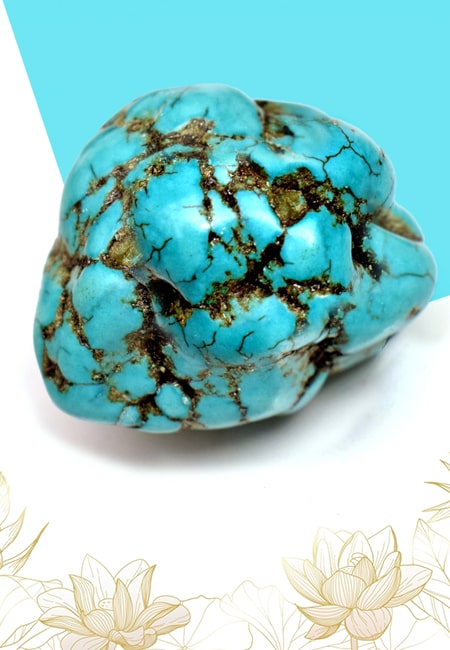
Unveiling the Mysteries of Turquoise Stone: Exploring its Meaning, Healing Properties, Power, Facts, Color, Uses, and More
December 05, 2023 / BY Team DWS
Turquoise, with its captivating blue-green hue, has been adorning jewelry and artifacts for centuries. This striking stone has a rich history, rich symbolism, and a plethora of int ..
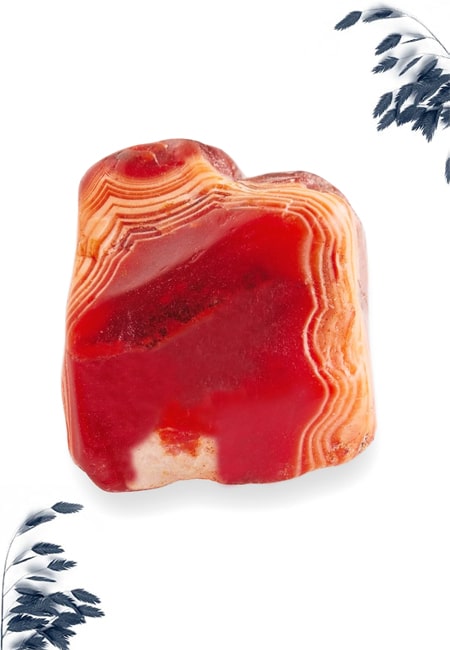
The History Behind The Popularity of Red Agate
December 23, 2022 / BY Team DWS
An Agate is a type of magma rock that takes many years till it is washed out naturally into the water. And that is the reason this stone has elements of water. This beautiful stone ..
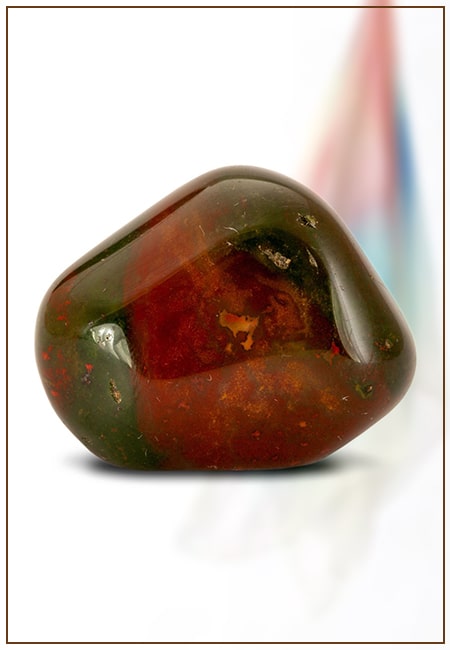
Bloodstone: Unveiling the Meaning, Healing Properties, Facts, Powers, Uses, and More
August 21, 2023 / BY Team DWS
Bloodstone, with its captivating deep green color with specks of red, is a mesmerizing gemstone that has fascinated civilizations for centuries. It possesses unique healing propert ..

Plan a Perfect Valentine's Week with Our Valentine Week List 2025
January 22, 2024 / BY Team DWS
Valentine's Day is undoubtedly the most romantic day of the year, but we believe that one day is just not enough to express your love and make your partner feel special. That's why ..


